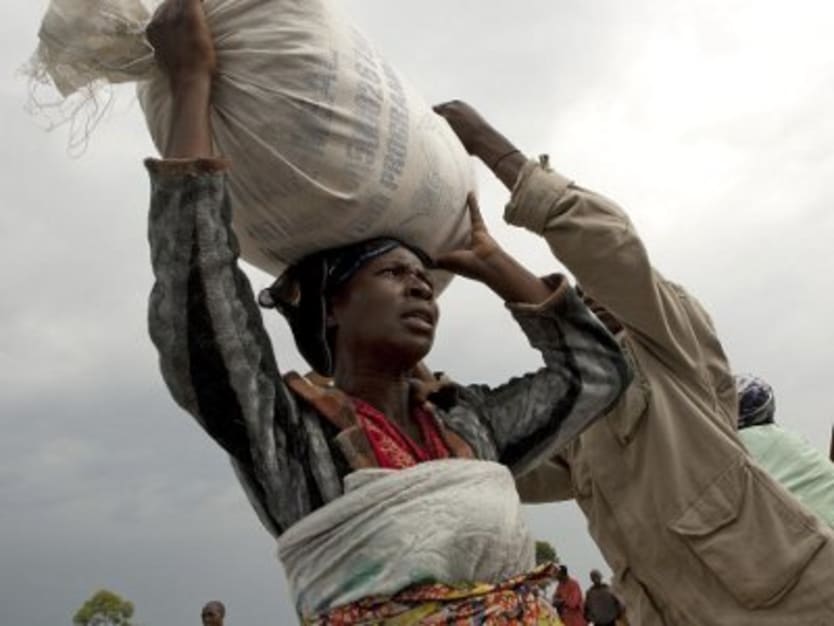
The rebel group M23 has been wreaking havoc across the eastern part of the Democratic Republic of the Congo, spreading violence, abuse and displacement in a region all too familiar with this kind of destruction. For aid groups working in the area, the rapidly deteriorating security situation means resources must be shifted to emergency response, and away from development programs meant to help communities rebuild.
“For the past two months our level of activity has pretty much ground to a halt when we talk about development,” said Ronald Paul Veilleux, International Rescue Committee’s provincial director for North and South Kivu.
About 80 percent of IRC development projects in North Kivu have been frozen while the organization waits to see if security improves enough for work to proceed.
A previously strong, well-financed IRC village reconstruction program in the province, for instance, cannot move forward when the villagers themselves have fled and the roads are too dangerous for workers and equipment to cross.
Health centers are either empty because local staff members ran from armed groups or facing a shortage in medicines, which IRC normally supplies. Further, many health practitioners at these facilities must do without salaries that the IRC used to provide to compensate for the government’s notoriously absent payments.
In one village, a scheduled water project has been put on hold despite concerns that disease epidemics could result. A cholera outbreak is already raging across North Kivu, with 753 patients treated at the Rwanguba cholera treatment center in July. Other patients are unable to travel to clinics at all because of blocked or dangerous roads.
Extreme violence has also led to increased cases of sexual assault and gender-based violence. Unable to reach many of the victims, the IRC has been forced to rely more and more on local partners to respond.
“Any measure taken that would enhance our access is definitely welcome,” Veilleux said.
The M23 rebel group is the newest on Congo’s roster of troublemakers, and is composed largely of Congolese army defectors who support International Criminal Court double-indictee Bosco Ntaganda.
Both the United Nations’ peacekeeping force of more than 17,000 and the Congolese army have been unable to stop armed groups in North Kivu from attacking civilians. An agreement signed by the presidents of Congo and Rwanda proposed an international military response to M23 activity in the area, but Rwandan president Paul Kagame has also been widely accused of secretly supporting the rebels, and international donors expressed no desire to contribute troops for such a force.
As wrenching as the newest wave of violence is, it’s only more of the same, Veilleux said. With so many militias with different agendas, knowing how to maneuver around them to gain access is a way of doing business in North Kivu.
But even experienced aid workers find decisions about where to send employees in an emergency difficult. They weigh heavily on managers like Veilleux, who must constantly assess the danger to his staff.
“Did they make it safely? Are they able to work? Do they have the resources that they need? It’s an added stress that we have to worry about every day, every hour, every minute,” he said.
Read more development aid news online, and subscribe to The Development Newswire to receive top international development headlines from the world’s leading donors, news sources and opinion leaders — emailed to you FREE every business day.


